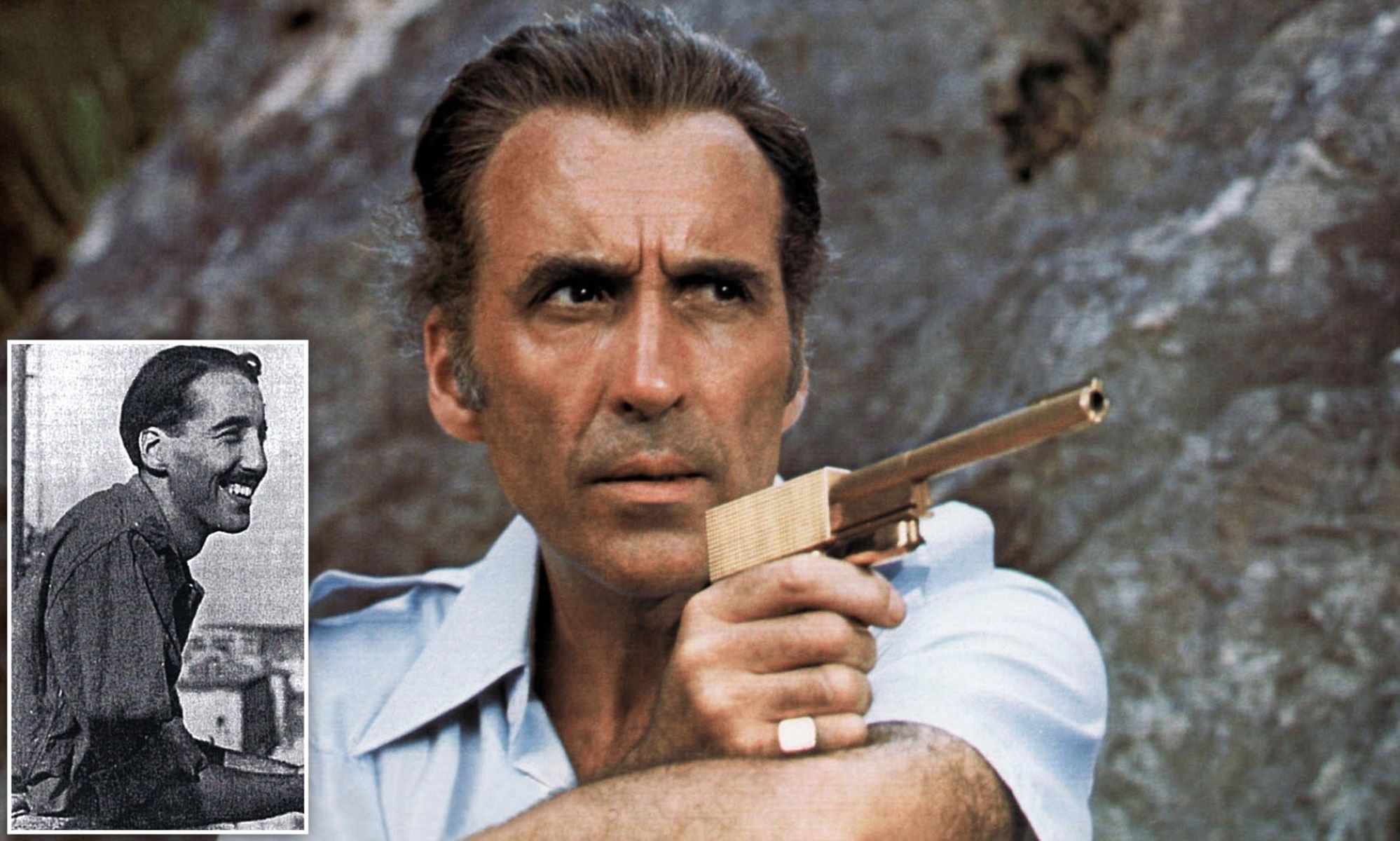
Did you know that Christopher Lee, the legendary actor known for his roles in Dracula and The Lord of the Rings, had a remarkable military career during World War II? Born in 1922, Lee's journey began with the Royal Air Force (RAF) and led him to the mysterious world of intelligence and special operations. Fluent in six languages, he decoded enemy ciphers and participated in daring missions with the Long Range Desert Group and the Special Operations Executive. Despite his reluctance to discuss these experiences, Lee's bravery earned him decorations from multiple governments. His cousin, Ian Fleming, even drew inspiration from Lee's wartime exploits for the James Bond novels. Dive into these 37 intriguing facts to uncover the hidden heroism of Christopher Lee's military career.
Key Takeaways:
- Christopher Lee's military career was marked by bravery and intelligence, from decoding German ciphers to tracking down Nazi war criminals. His secretive service adds to his legacy as an extraordinary individual.
- Despite his towering height and iconic acting career, Christopher Lee's military bravery and contributions were widely recognized, shaping his future and adding depth to his character and career.
Early Life and Enlistment
Christopher Lee's journey into the military began long before World War II. His early life and family background set the stage for his future service.
-
Birth and Early Life: Christopher Lee was born on May 27, 1922, in West London, England. His father, Geoffrey Trollope Lee, had fought in the Boer War and the First World War with the 60th King’s Royal Rifle Corps.
-
Enlistment in the RAF: At the outbreak of World War II, Lee enlisted in the Royal Air Force (RAF) in 1940, initially aiming to become a fighter pilot. However, he was diagnosed with a failed optic nerve and was forbidden from flying.
Transition to Intelligence Work
Despite his initial setback, Lee found a new path in the RAF, utilizing his unique skills in intelligence.
-
Transfer to Intelligence Unit: Despite his disappointment, Lee was transferred to the RAF Intelligence unit, where he utilized his skills in decoding German ciphers.
-
Language Skills: Lee was fluent in six languages, including French and German, which proved invaluable during his intelligence work.
Key Assignments and Operations
Lee's military career was marked by several significant assignments and operations that showcased his bravery and intelligence.
-
Assignment to No. 260 Squadron RAF: Lee was attached to No. 260 Squadron RAF as an intelligence officer, playing a crucial role in decoding enemy communications.
-
Special Operations Executive (SOE): After his time with the RAF, Lee was seconded to the Special Operations Executive (SOE), an organization known for conducting espionage, sabotage, and reconnaissance in occupied Europe.
-
Long Range Desert Group (LRDG): Before joining the SOE, Lee worked with the Long Range Desert Group (LRDG), a precursor to the Special Air Service (SAS). He was involved in sabotaging Luftwaffe planes and airfields in North Africa.
-
Battle of Monte Cassino: Lee officiated the Gurkhas of the 8th Indian Infantry Division during the Battle of Monte Cassino, a pivotal battle in the Italian Campaign.
Post-War Activities and Recognition
After the war, Lee's contributions continued to be recognized, and his experiences shaped his future career.
-
Central Registry of War Criminals and Security Suspects (CROWCASS): During his final months of service, Lee was tasked with tracking down Nazi war criminals. He worked alongside CROWCASS, witnessing Nazi concentration camps firsthand.
-
Classified Service Records: Lee's service records remain classified, adding to the mystery surrounding his wartime activities.
-
Reluctance to Discuss Service: Despite his significant contributions, Lee was reluctant to discuss the details of his military service, often saying only that he was involved in "Special Forces".
-
Decorations and Honors: After his retirement from the RAF in 1946, Lee was individually decorated for battlefield bravery by the Czech, Yugoslav, British, and Polish governments.
Connections and Controversies
Lee's military career is also marked by intriguing connections and some controversies regarding the extent of his involvement in elite units.
-
Ian Fleming Connection: Lee's cousin was Ian Fleming, the creator of James Bond. The two men served together during the war, with Fleming drawing inspiration from Lee's experiences for his novels.
-
Historical Doubts: Some historians have questioned the extent of Lee's involvement in elite units like the SAS and LRDG. Gavin Mortimer, a historian specializing in the SAS, has suggested that while Lee was attached to these units, he did not serve in them directly.
-
Christopher Lee’s Autobiography: In his autobiography, Lee wrote about his wartime exploits, but often demurred to discuss them at length, adding to the mystique surrounding his military career.
-
Guy Walters’ Critique: Another historian, Guy Walters, has criticized some of Lee’s claims, particularly regarding his involvement in Nazi-hunting activities. Walters pointed out that members of CROWCASS were based behind desks and did not engage in field operations.
Rank and Post-War Career
Lee's military rank and his decision to pursue acting after the war played a significant role in shaping his future.
-
Christopher Lee’s Military Rank: Lee retired from the RAF in 1946 with the rank of flight lieutenant.
-
Post-War Career: After the war, Lee returned to London and turned down a job offer from Beecham's, opting instead to pursue a career in acting.
Acting Career and Legacy
Lee's military experiences undoubtedly influenced his acting career, leading to iconic roles and a lasting legacy.
-
Early Acting Career: Lee’s early acting career included roles in films such as The Curse of Frankenstein (1957) and Dracula (1958).
-
Hammer Horror Films: Lee gained fame for portraying Count Dracula in seven Hammer Horror films, cementing his status as a horror icon.
-
James Bond and Star Wars: Lee appeared in notable films like The Man with the Golden Gun (1974) and Star Wars (2002-2008), playing the role of Count Dooku.
-
The Lord of the Rings and The Hobbit: He also played the menacing character Saruman in both The Lord of the Rings and The Hobbit trilogies.
-
Tim Burton Films: Late in his career, Lee appeared in five Tim Burton films, including Sleepy Hollow (1999), Corpse Bride (2005), Charlie and the Chocolate Factory (2005), Alice in Wonderland (2010), and Dark Shadows (2012).
-
Heavy Metal Music: Lee was also an accomplished singer and worked with several heavy metal bands, appearing on albums such as Charlemagne: By the Sword and the Cross (2010) and Charlemagne: The Omens of Death (2013).
-
Knighthood and Honors: Lee was knighted for services to drama and charity in 2009, receiving the BAFTA Fellowship in 2011 and the BFI Fellowship in 2013.
Unique Traits and Interests
Lee's unique traits and interests further highlight his extraordinary life beyond the military and acting.
-
Height and Physical Appearance: Lee stood at 6’5” (196 cm), which made him one of the tallest actors of his time. His height initially proved to be a handicap in his early career but eventually became an asset.
-
Prolific Acting Career: Lee acted in more than 220 feature films, including nine films in two different years (1955 and 1970).
-
Sherlock Holmes Roles: Lee played three different characters from the Sherlock Holmes stories: Sherlock Holmes, Mycroft Holmes, and Ser Henry Baskerville.
-
Public Executions Hobby: Lee had a unique hobby—memorizing the details of public executions dating back to the mid-15th century.
Memorable Quotes and Personal Relationships
Lee's personal experiences and relationships added depth to his character and career.
-
Memorable Quotes: During an interview, Lee once said, "I've seen many men die right in front of me—so many in fact that I've become almost hardened to it. Having seen the worst that human beings can do to each other, the results of torture, mutilation and seeing someone blown to pieces by a bomb, you develop a kind of shell. But you had to. You had to. Otherwise we would never have won."
-
Saruman’s Death Scene: When filming The Lord of the Rings: The Return of the King, director Peter Jackson attempted to give Lee direction on how to behave and sound when stabbed in the back. Lee responded with, "Because I do," indicating his personal experience with such injuries.
-
Personal Relationships: Lee was on personal terms with Josip Broz Tito, the leader of the Partisan resistance movement in occupied Europe, which further highlights his involvement in significant historical events.
Military Bravery and Secrecy
Despite the secrecy surrounding his service, Lee's bravery and contributions were widely recognized.
-
Military Bravery: Despite the classified nature of his service records, Lee’s bravery during the war was recognized by multiple governments, including those of Czechoslovakia, Yugoslavia, Britain, and Poland.
-
Special Operations Executive Activities: While working for the SOE, Lee conducted espionage, sabotage, and reconnaissance in occupied Europe against the Axis powers.
-
Nazi War Criminals Tracking: Lee’s task of tracking down Nazi war criminals involved working alongside CROWCASS, during which he witnessed Nazi concentration camps firsthand.
-
Interviews and Secrecy: When questioned about his SAS past, Lee would often lean forward and whisper, "Can you keep a secret?" This secrecy underscores the sensitive nature of his wartime activities.
-
Legacy and Impact: Christopher Lee’s military career, though shrouded in some mystery, adds to his legacy as an extraordinary individual who contributed significantly to both the war effort and the world of cinema.
Christopher Lee's Wartime Legacy
Christopher Lee's military career is as fascinating as his film roles. Born in 1922, he joined the RAF in 1940, aiming to be a fighter pilot. Due to a failed optic nerve, he shifted to intelligence work, decoding German ciphers. His fluency in six languages made him invaluable. Lee's service included stints with the RAF Intelligence unit, No. 260 Squadron, and the Special Operations Executive (SOE). He even worked with the Long Range Desert Group (LRDG) and witnessed the horrors of Nazi concentration camps.
Despite some historians questioning his involvement in elite units, Lee's bravery and contributions are undeniable. Decorated by multiple governments, he retired as a flight lieutenant in 1946. His reluctance to discuss his service only adds to the mystique. Christopher Lee's wartime experiences, combined with his iconic film career, make him a truly extraordinary figure. His legacy continues to inspire and captivate.
Frequently Asked Questions
Was this page helpful?
Our commitment to delivering trustworthy and engaging content is at the heart of what we do. Each fact on our site is contributed by real users like you, bringing a wealth of diverse insights and information. To ensure the highest standards of accuracy and reliability, our dedicated editors meticulously review each submission. This process guarantees that the facts we share are not only fascinating but also credible. Trust in our commitment to quality and authenticity as you explore and learn with us.


